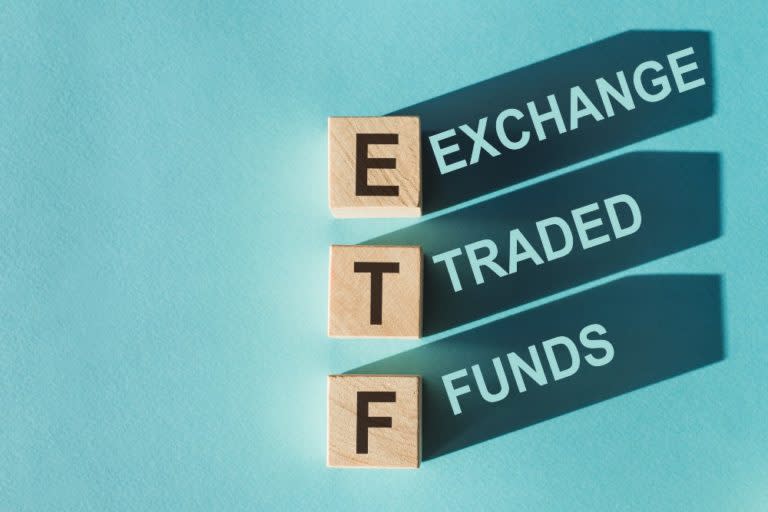What’s the Best Way to Invest in Stocks Without Any Experience? Start With This ETF

Written by Tony Dong, MSc, CETF® at The Motley Fool Canada
When venturing into the stock market for the first time, it’s tempting to jump in and start buying stocks, but doing so without any experience can lead to some harsh lessons.
I learned this the hard way back in 2017 when I invested in a marijuana penny stock, only to see my investment vanish. It’s a common mistake many new investors make, often driven by greed.
Even investing in single blue-chip stocks, which are shares in large, well-established companies known for their financial stability and reliability, isn’t foolproof. While these companies are less likely to go under, there’s still the risk of your investment stagnating, leading to long periods of flat or minimal returns.
For beginners, a more prudent approach to entering the stock market is through exchange-traded funds (ETFs). ETFs are investment funds traded on stock exchanges, much like stocks. They can offer a balance of risk and reward that’s especially suitable for those still learning the ropes of investing.
In the next sections, I’ll explain why ETFs are a great option for novice investors and share my top ETF pick for those just starting out in the stock market. Keep reading to find out!
Why use an ETF as a beginner investor?
Investing can seem like a complex puzzle, especially for beginners. One key piece of this puzzle is diversification, a critical strategy for managing risk and maximizing potential returns.
Let’s visualize diversification as a Russian nesting doll, with each layer representing a deeper level of diversification.
Single stock: Imagine you own a single stock. This is like the smallest doll in the set. While owning a stock can offer high potential returns, it also carries significant risk. If the company underperforms, your investment suffers directly.
Single sector: Now, think about investing in multiple stocks within a single sector, like technology or healthcare. This is the next and larger doll. This approach reduces risk compared to a single stock, as you’re not relying on the performance of just one company. However, sector-specific downturns can still impact your investment significantly.
Single country: Expanding further, investing in stocks across various sectors within a single country offers a broader safety net. This level can cushion against sector-specific risks but is still vulnerable to country-specific economic challenges.
Global stocks: Taking a step further, investing in global stocks diversifies your investment across different countries and sectors. This level offers protection against both sector-specific and country-specific downturns, but it’s primarily focused on stocks, meaning it’s still subject to greater volatility.
Global stocks and bonds: The final and most comprehensive layer includes both global stocks and bonds. This combination balances the growth potential of stocks with the stability of bonds, offering a well-rounded investment approach.
By choosing an ETF, you can achieve this fifth level of diversification effortlessly. For a beginner investor, this means you can enjoy a diversified portfolio without the need for extensive research or deep market knowledge.
My ETF of choice
When it comes to choosing an ETF that embodies the concept of diversified investing with ease, I like Vanguard Growth ETF Portfolio (TSX:VGRO).
VGRO costs just 0.24%. To put it in perspective, that’s $24 in annual fees for a $10,000 investment. But what exactly do you get for this modest fee?
Global stock exposure: VGRO invests about 80% of its portfolio in over 10,000 stocks. This vast array spans several major markets, including the U.S., Canada, Europe, Asia, and even some parts of the Middle East.
Bond stability and income: The remaining 20% of VGRO is invested in global bonds. Bonds, generally being less volatile than stocks, provide a cushion against market downturns and contribute to a more stable portfolio.
Your role as an investor in VGRO is straightforward: buy, hold, and reinvest dividends. This simplicity is especially appealing for beginners who may not have the time or expertise to manage a complex investment portfolio.
With VGRO, you’re not just buying an ETF; you’re investing in a comprehensive, globally diversified portfolio managed by one of the world’s leading investment firms.
The post What’s the Best Way to Invest in Stocks Without Any Experience? Start With This ETF appeared first on The Motley Fool Canada.
Should You Invest $1,000 In Vanguard Growth Etf Portfolio?
Before you consider Vanguard Growth Etf Portfolio, you'll want to hear this.
Our market-beating analyst team just revealed what they believe are the 10 best starter stocks for investors to buy in 2024... and Vanguard Growth Etf Portfolio wasn't on the list.
The online investing service they've run for a decade, Motley Fool Stock Advisor Canada, is beating the TSX by 32 percentage points. And right now, they think there are 10 stocks that are better buys.
Get Our 10 Starter Stocks Today * Returns as of 12/22/23
More reading
Can You Guess the 10 Most Popular Canadian Stocks? (If You Own Them, You Might Be Losing Out.)
How to Build a Bulletproof Monthly Passive-Income Portfolio in 2024 With Just $25,000
Fool contributor Tony Dong has no position in any of the stocks mentioned. The Motley Fool has no position in any of the stocks mentioned. The Motley Fool has a disclosure policy.
2024

 Yahoo Finance
Yahoo Finance 